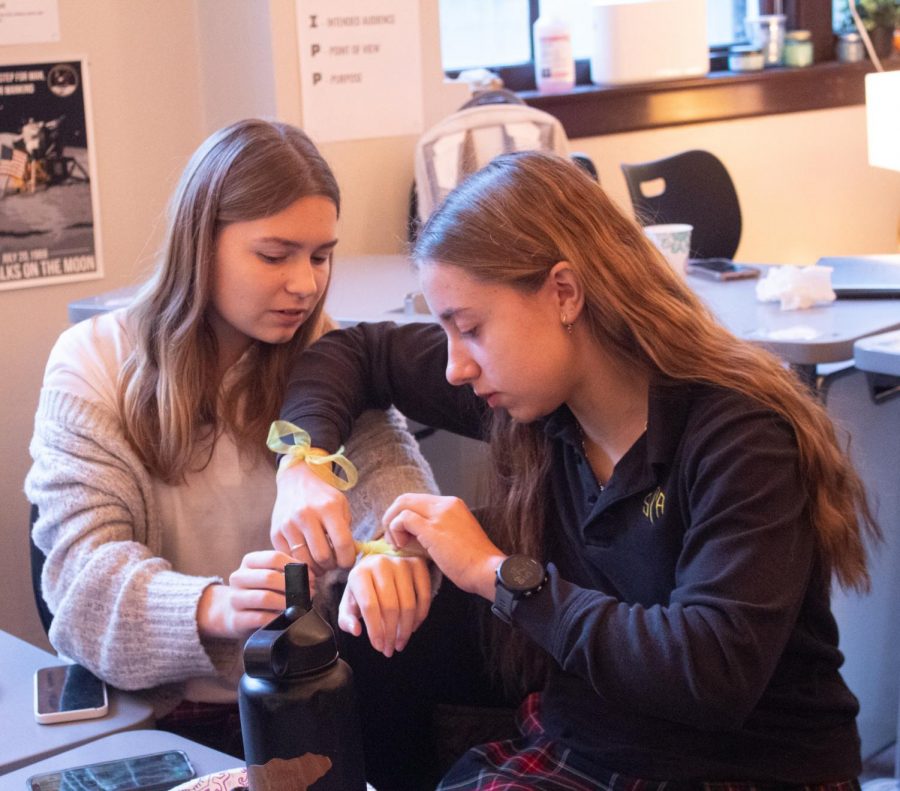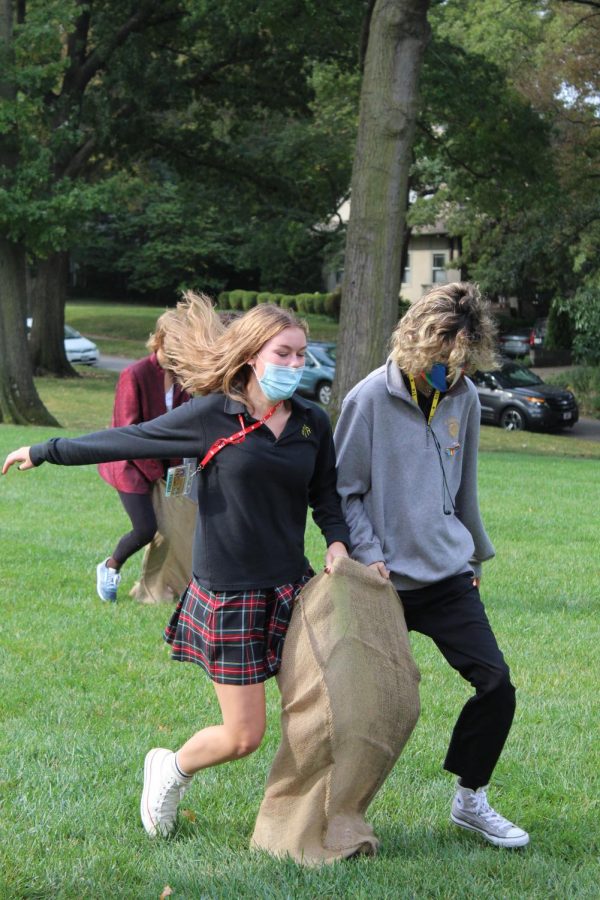STA staff creates health plan to contain viruses, avoid H1N1 0utbreak on campus | by ELIZABETH WILSON
On June 11, the World Health Organization signaled that a pandemic of H1N1 flu (commonly referred to as ‘swine flu’Â) was underway. Despite its widespread outbreak, STA faculty and staff assure they are prepared for any possible obstacle H1N1 may bring.
Though as of Sept. 3, STA had yet to report a case of the swine flu this school year, it has been rumored that several students may now have H1N1 at STA, but school administrators are not at liberty to disclose this information.  Sophomore Kate Rohr contracted a case of H1N1 this summer and ’09 alumna Lindsey Jones and Lauren McQuaid were 2 of the 340 students (as of Aug. 31) at the University of Kansas to report cases of H1N1.
According to principal for student affairs Mary Anne Hoecker who attended a public health briefing from the Mid America Regional Council regarding H1N1 Monday, public health officials said hospitals are no longer testing for H1N1, so many cases are going unconfirmed.
‘If you have flu symptoms, it is very possible you have [H1N1] and you should stay home,’Â Hoecker said.
STA has been doing many things to stay up to date on the latest information and to educate its community about the flu. Hoecker made an announcement to the school about hand washing, not sharing water bottles and properly disposing of tissues, sent an E-mail regarding the flu to parents and biology teacher Mary Montag had her students make signs encouraging students to wash their hands, which have been placed around the school. Administrators have also done research and talked with pediatricians for advice on how to cope with this flu and keep students healthy.
According to pediatrician Bob Schloegel, the best way to stay healthy is to practice the ‘universal precautions.’ These are hand washing, avoiding sharing water bottles, coughing into your arm and isolating yourself if you start getting sick.
President Nan Bone also added that students should minimize their hugging.
‘But how are you going to stop that at STA?’Â Bone asked with a laugh.
Bone also believes students should keep hand sanitizer in their purses or in their backpacks. She said teachers asked parents at Back to School Night to send extra jars of wipes or hand sanitizer to school with their daughters.
“Schools are a breeding place for the flu,” Bone said.
Hoecker also mentioned that children under the age of 18 along with pregnant women and those with health issues are the ones being most affected by this flu.
Schloegel said he has seen some cases of H1N1 in his office, but nothing severe.
‘It is a flu-like illness,’Â Schloegel said.
If a student should come down with H1N1 or feels they may have it, according to Hoecker, that student should go to administrative assistant Julia Berardi in the front M&A Building office, where Berardi will take the student’s temperature and most likely call the student’s parents to create further arrangements. Any student vomiting will immediately be sent home. Hoecker said students should remain at home until 24 hours after their fever has broken and the student is no longer taking Tylenol or other fever-reducing medications.
If a large outbreak of H1N1 occurs at STA, Bone will be visiting with the staff about making classes less rigorous until the outbreak ceases.
‘The only time we would ever close is if over half of our faculty and staff got [the flu] and we couldn’t get enough subs[titutes],’Â Bone said.
Bone said she knows the STA mentality is, ‘I gotta go, I can’t miss this class.’ But, Hoecker insisted the school does not want students coming with a fever.
‘They need to rest,’Â Hoecker said.
Hoecker said clinical trials for a H1N1 vaccine will be analyzed in the next two weeks. Health officials hope for the vaccination to be ready by mid October.
According to Schloegel, the vaccine, if approved, will be available at local health departments.
As for now, emergency updates regarding H1N1 will continue to be given via school-reach. Administrators recommend checking in with personal pediatricians and remaining calm.
‘It’s the same kind of prevention for any kind of flu,” Hoecker said. “We don’t want to get hysterical.’Â
How to avoid H1N1:
-      Wash your hands
-      Avoid sharing drinks and utensils
-      Cough into your arm
-      Clean surfaces with antibacterial wipes
-      Stay six feet from someone with H1N1
-      Check in with your pediatrician
H1N1 symptoms:
-      High fever (above 100 degrees)
-      Chills
-      Headache
-      Extreme tiredness
-      Body aches
-      Dry cough
-      Congestion
-      Sore throat
-      Runny nose
-      Stomach pains
-      Chest discomfort
What to do if you think you may be infected with H1N1:
-      If you are at school, go to administrative assistant Julia Berardi in the front M&A Building office. She will help you from there.
-      Isolate yourself
-      Take Motrin
-      Drink fluids
-      Rest
-      Stay home 24 hours after your fever breaks







